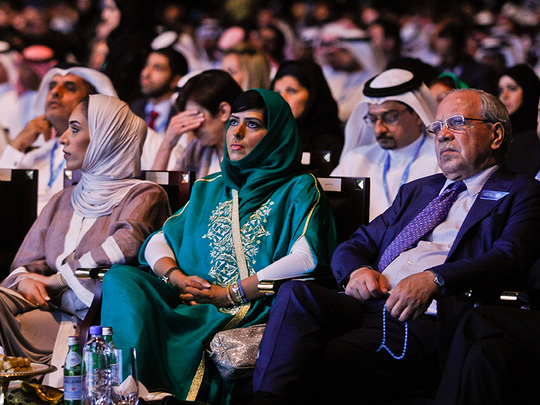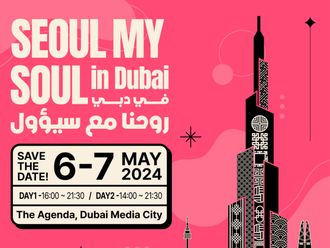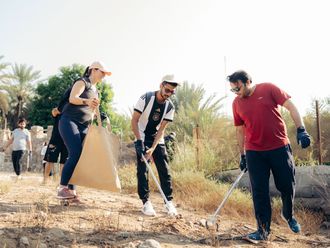
Dubai: While some speakers at the Arab media forum saw the military operation Storm of Resolve as hope for Arab unity, others disagreed, believing that such “propaganda” and “sentiments” should not be spread.
Different opinions were shared on the first day of the forum during the session titled “Decisive Storm (Storm of Resolve): media on the front line”, which discussed the outcomes of the military operation as well as the media’s role as a functional weapon.
“As a person from the GCC, this operation means a lot to me because it was the first time since 1973 to see Arab countries collaborate and orchestrate a military operation on their own. It gives hope for unity of Arab countries and their armies. It gives us hope that we can act freely without other countries’ permission,” said Dr Fahd Al Shulaimi, President of the Gulf Security and Peace Forum.
Al Shulaimi said that the Arab World is fed up with repeated slogans and propaganda. He said the ‘Storm of Resolve’ is proof to people who believed that GCC countries are just countries that support only with money, that they are more than that.
He believes that after the Storm of Resolve operation this will not be the case any more.
“GCC signed a contract with the US to buy weapons worth $326 billion (Dh1.19 trillion) from 2010 to 2016. We don’t trust the US presidents; look at what happened in Iraq, Syria and Afghanistan. The US is only your partner if you are on the winning team. So I say why don’t we buy nuclear weapons as well, why is it justified for Israel and not us Arabs?”
Dr Mamoun Fandy, Director of the London Global Strategy Institute, believed that operation Storm of Resolve had an effect on Iranian-US nuclear negotiations
“I think the operation has made the Iranian stand less in the nuclear negotiations. We the Arabs have a problem with the Iranian presence. Ultimately Iran will sign an agreement as a result of military action in Yemen,” he said.
Having said that, Fandy said there is a huge gap between what the media is portraying regarding the military operation and what is happening in reality.
“We should not lead the audience to think that the operation will lead to something bigger and greater when the operation is not finished yet, there is no exit strategy and we still don’t know what will happen with Yemen.”
Dr Fandy also said the Yemen model won’t necessarily work in other hot spots.
Dr Ali Al Khoshebani, Saudi writer in Riyadh newspaper also believed that things should not be blown out of proportion.
“We have to be aware that GCC countries did not make such a decision to enter this war for sentimental reasons. They did so because they were threatened by Iran and had no other choice. I don’t see that it will unite Arabs together. People are blowing it out of proportion and saying Lebanon and Syria are next,” he said.
Dr Ali Al Nuaimi, Vice-Chancellor at UAE University, said the operation was one of the hardest decisions GCC countries, which are peaceful countries, had to make.
He, however, believes that the operation is the biggest achievement for the people of the GCC.
“It’s the first time that we as a GCC people were able to hold our head high with pride. We were often attacked by the media who asked why we are buying so many weapons if we never seem to use them. Some even joked saying that all the weapons we bought are going to rust. This operation proves otherwise.”
Al Nuaimi also said people will see how important the decision of the GCC countries to protect Egypt is in the future as there is no safety and stability in the Arab world without Egypt.












